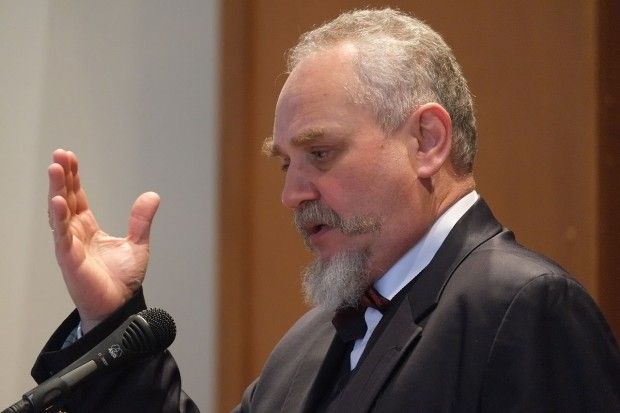
Russian scholar Andrei Zubov: "Nothing is more intoxicating than annexation of foreign land"
In an interview with UNIAN, Doctor of Historical Sciences, Professor Andrei Zubov explains that, by stopping the advance of Russian aggression, Ukraine has saved the other post-Soviet countries from the territorial claims of the Kremlin. Mr. Zubov offers his own recipe for Putin to save face after forced withdrawal from the occupied Donbas.
Doctor of Historical Sciences, Professor Andrei Zubov was one of the few in Russia who publicly opposed the occupation of the Ukrainian Crimea, and the cost for his stance was high – he was expelled from his post at the Moscow State Institute of Foreign Affairs. It’s impossible now for the scientist who drew parallels between Nazi Germany and modern Russia to find a job in any of the Russian universities. He is blacklisted as they say. Meanwhile, the world’s best educational facilities are happy to invite him as a guest lecturer.
Professor Zubov believes that, to understand Ukrainians in the issue of Crimea, the Russians should imagine that Kyiv professes and implements the principle of “Kuban is ours” under the pretence of Ukrainian-speakers living in the area [Kuban is a Russian region bordering with Ukraine; Crimea is ours is a popular Russian meme which accompanied the annexation of the Ukrainian peninsula and has gained even more popularity among the Russians ever since].
His recipe for the resumption of relations between Ukraine and Russia is simple - an official apology from the Kremlin for the dead and the wounded, compensation for inflicted economic losses, and the return of the Crimea.
These days two years ago, it was decided in the Kremlin to seize Crimea. What has Russia won and what has it lost after the annexation of the peninsula?
Of course, Russia has lost, there is no doubt about it. One can only speculate whether Putin’s Administration has won. For Russia as a state, this whole venture launched late February 2014 was a disaster. Although not everyone understands this yet, but the number of those who do is growing. If we remember Russia during the Sochi Olympics, the country was in its heyday, while Putin indeed was a popular president. There were no signs... [that] the tragic events would erupt in Ukraine; diplomatic skills had to be used, and everything would have gone well. But Putin does something that is deemed virtually impossible in the modern world, especially in Europe: he seizes a province of another state, then starting a war and speaking up of the creation of Novorossiya – from Moldova to [the eastern Ukrainian city of] Kharkiv. This is pure madness that just doesn’t fit into the modern style of diplomatic relations of civilized nations, especially within the G8. This decision was a violation of everything you can imagine: not only the agreements between Ukraine and Russia, but also the UN Charter. The repercussions followed immediately. Russia became the world’s absolute outcast. From the state friendly to the world’s most developed countries we have moved to a circle of the most rogue state actors such as North Korea or Iran. We have no more friends; even with China our relations are complicated. In addition, there are sanctions and the unprecedented economic crisis, the toughest one since the collapse of the Soviet Union... Everything that was caused by the Kremlin’s inept adventurist policy is totally against Russia’s interests.
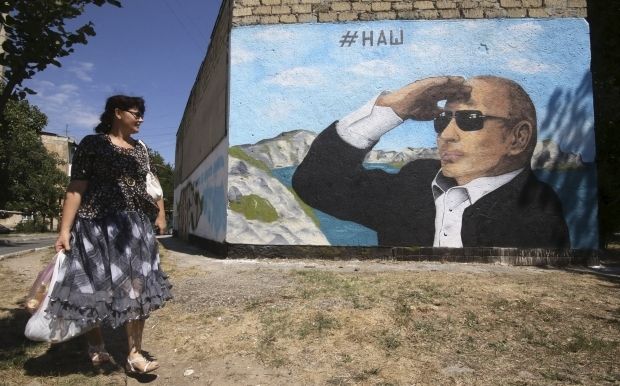
Two years ago, you compared the seizure of Crimea to Hitler's “Anschlüss” of Austria in 1938. Do you regret your words? After all, that’s what left you unemployed...
Of course, I don’t. I would say the opposite. When the familiar events started on February 26-27, 2014, I had these analogies constantly in my mind with Austria, the Sudetenland, Klaipeda, and Memel. All these territories were annexed by Hitler. I felt that I had to speak up. Similar actions yield similar results. It doesn’t happen any other way.
I have repeatedly stated that this comparison is not even in favor of Russia. Because Hitler's Germany was strong. Though ugly, it was a state with a growing economy, and its regime was gaining momentum, while the industry worked in full swing and the nation was consolidated. There is another thing here. Russia was already in a difficult economic situation due to the government’s inept economic policy; the country has become dependent on its exports of raw materials, which was not the case until 1917 and during the Soviet era. In all respects, Russia is today far more vulnerable and dependent on the international community than Nazi Germany was in 1938.
If the German annexation went smooth and the country’s first military campaigns in 1939, 1940 and even in 1941 (their first stage against the Soviet Union) were a solid success, the Russians were immediately faced with failure. Russia even failed to complete its campaign in Ukraine. Crimea was annexed by catching Ukraine off its guard, while the “Novorossiya” project suffered a total defeat. It was already clear back at the time of the Ilovaisk battle in August, 2014. Russia may have won that battle, but it has lost the campaign.
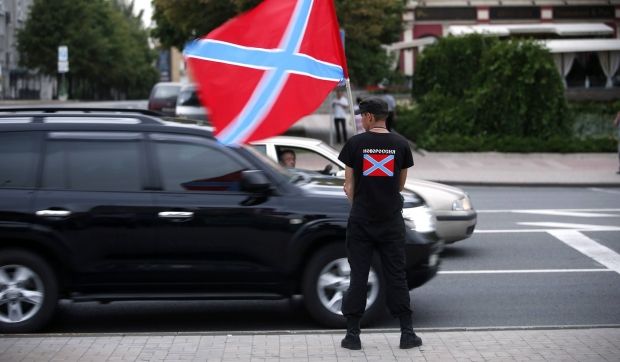
As for me personally, the first half of my life I lived in the Soviet Union, that’s when I couldn’t talk about many things, or talk about them in Aesopian language. I felt disgusted. Then came the era of freedom after 1988, when my only task was to shape my thoughts most adequately not thinking about own security, and I realized that can’t and I won’t give up on such luxury. Having said what I said was my duty as a citizen, a historian, a scholar, and an expert in political relations.
You are saying that Russia has lost from the annexation of Crimea, but on the other hand, more than 80% of Russians are happy, chanting "Crimea is ours,” strongly supporting the propaganda-imposed concept of "the country getting up off its knees," despite the apparent economic hardships...
This is true, but this majority is not what it used to be like in the past. Don’t trust the polls in a totalitarian country. When people on the street are confronted with the question on whether they approve Putin's policy and the accession of Crimea, they will most likely say “yes,” because they understand that, if they say “no” they might get in trouble at work, or even their children.
Had the survey been conducted in Nazi Germany on popular support of the Führer, the 99.99% would have answered positively. In the story with Crimea, the situation is similar. Of course, there are some excesses. Nothing is more intoxicating than the annexation of a foreign land. People are ready to lose thousands, hundreds of thousands of people as economic immigrants but lose one-hundredth of their territory is a tragedy, while gaining it is a great delight. That’s human nature.
It’s the same way as they use to catch wild monkeys for the zoo. They would take a large pumpkin, make a small hole in it and pour some rice. A monkey would put its paw into the hole and grabs this rice, unable to pull the fist while it’s clenched. So the monkey just sits there next to the pumpkin until people come and lock it up. Same thing with Crimea…
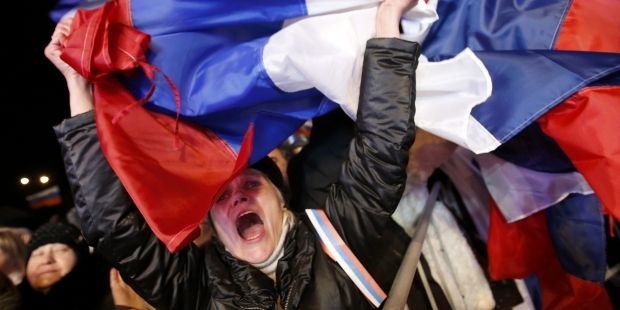
I think gradually people will understand the connection between impending poverty and Crimea. They already do. If the situation worsens, social unrest is inevitable, which, as we know, always ends in Russia with revolution, as in Ukraine, actually.
How should the problem of Crimea be solved, even if the Russian opposition leaders are happy with the annexation of the peninsula and avoid public statements that something illegally seized must be returned? What about ordinary Russians?
Indeed, Navalny and Khodorkovsky said something like that early last year. But when Kasyanov and I explained to them personally, they realized they were wrong. "Yabloko” and "Parnas" [the two Russian opposition political movements] clearly stated in their party documents that Crimea must be returned to Ukraine and the Donbas conflict must be resolved.
The UN has long discussed the problem of what is preceding – territorial integrity or the right of people to self-determination. The organization came to a conclusion that in situations where people face dire consequences, the right to self-determination has precedence over the right to territorial integrity. This is what Kosovo used in its interests.
They should ask the people. We understand that, despite all the suffering endured by the residents of Crimea [as a result of the annexation], the majority is still going to say they see Crimea part of Russia. But there is one important thing here. Most of the people living in Crimea today are descendants of those who were resettled to the peninsula after 1945, while the indigenous people - Crimean Tatars, Germans, Bulgarians, Greeks - were forcibly deported. In this sense, the fate of this land can’t be determined only by the people who took over the land of the oppressed minorities. Therefore, their descendants [of the oppressed people deported from Crimea] also need to decide on the fate of the peninsula. Not all of them have returned to Crimea. Only about a half of Crimean Tatars have returned, while the other nations haven’t.
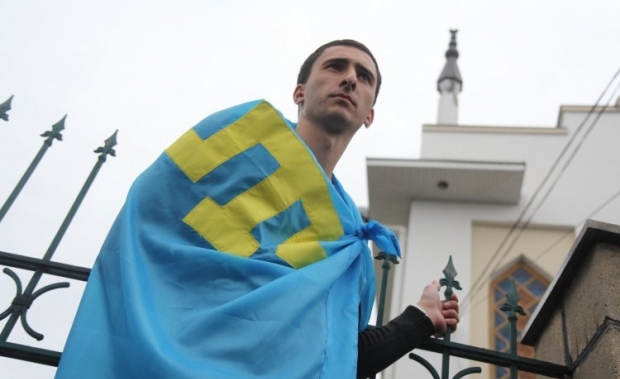
To solve the Crimean problem, the following steps must be taken. Firstly, Crimea must be returned to Ukraine in a legal field. The troops must be withdrawn as well as the security forces of Russia. Then a temporary international status must be introduced, just like in the plebiscite territories after World War I. It is necessary to prepare the Crimea to the international plebiscite under UN supervision. The Crimean population as of 2014 must take part in the referendum as well as the descendants of the deported Crimean residents. All of them, if they wish, should have the right to vote. It may take a few years to prepare the lists of potential voters. The ballot should contain three questions: "Do you want to stay in Ukraine?", "Do you want to move under the jurisdiction of the Russian Federation?" or "Do you want to create an independent state?". In this case, such decision would be irreproachable. The will of the people will be heard, which will allow Russia to get out of this situation without so much disgrace, while it will be easier for Ukraine to accept it. In our obsolete Soviet mentality, we value the land but we fail to value the people living there.
In the situation with Crimea, the Russian authorities often refer to the so-called Kosovo precedent. How rightful is to compare these two situations?
We should not forget that there was an actual genocide of the Albanian population in Kosovo in 1999. The Albanian University was closed, as well as the Albanian newspapers. Milosevic tried to deprive the autonomous status of Kosovo. Then all the Albanians revolted, and the civil war broke out. As a result, the UN provision was implemented stipulating precedence of the right of the nation to self-determination over territorial integrity, for the sake of saving the nation. No one challenges the fact of the actual genocide in Kosovo. Both parties shed blood.
In Crimea there is a completely different situation. No one will ever say that there was genocide of the Russian population. Yes, there were some unresolved language problems [in fact, the Russian-language schools dominated in Crimea]. For example, my colleagues have complained that it was impossible to defend a thesis in Russian. Maybe an exception could be made. But in Russia it is also impossible to defend a thesis, for example, in the Yakut language – only in Russian. These things are not regulated by seizing territories! If Russia was really worried about the fate of the Russian speakers in Crimea and Donbas, especially amid Ukraine’s EU aspirations, it would be enough to require compliance with the Charter on National Minorities of the European Union. Then the Russian speakers would be granted more rights. There was no need to resort to the horrors the Kremlin brought to life.
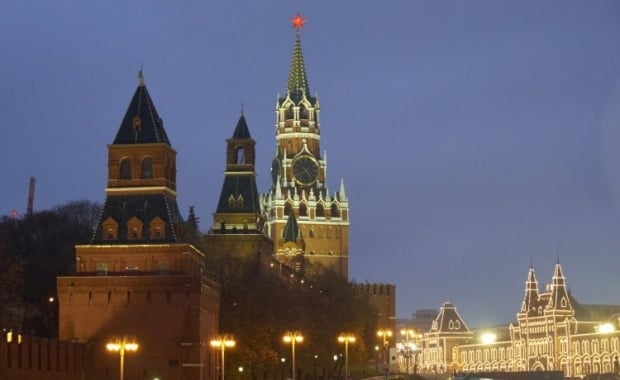
All these statements about the oppression of the Russian speakers were 90% false, being just a pretext for the annexation of the Ukrainian territory. That is why the international community did not recognize Russian Crimea, unlike Kosovo. Even the Kremlin top notch ideology masterminds say that there “could have been” genocide. Such “could-have-been” things don’t work in foreign policy.
Is it possible that the Crimean scenario will be repeated as Russia will try to seize other parts of the former Soviet republics? For example, if Kazakhstan decides to integrate deeper with China, or Belarus – with the European Union…
“Unpredictable and very dangerous” – this term has been used in relation to Russia's policy at all of the most respectable international forums I’ve attended. First, Ukraine, then Syria… It seems that Russia drives itself into a dead end. If there is at least an ounce of common sense left in the Kremlin, they won’t dare sticking their nose into Kazakhstan or Belarus after cutting their teeth on Ukraine.
Now the most important thing for the Kremlin is to have the sanctions lifted at the same time managing to preserve to the maximum what they have already seized in Ukraine. The only question is whether it is possible. In the West, there are many voices willing to compromise, but, in general, the West stands strong waiting for the implementation of Minsk-2 and the settlement of the Crimean issue.
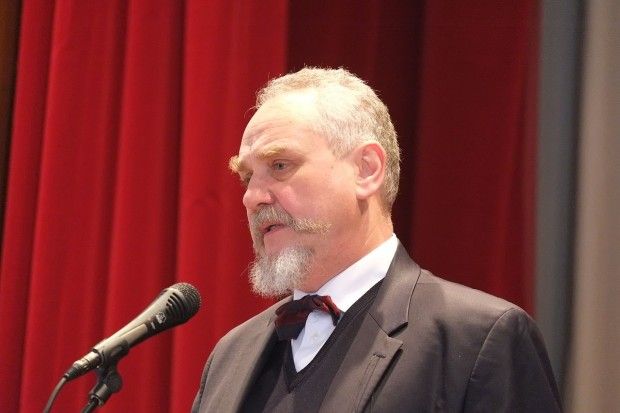
I think that, if the Ukrainian authorities are not total fools, they must now demand in Donbas control over the border, elections under international supervision, and then the inner settlement. A little more time, and Moscow will go for it. The alternative is the new major military campaign. It would be a disaster for Russia.
One may get an impression that the Kremlin wants to freeze the Donbas conflict like it has in Transnistria...
How’s that? The sanctions are in place, there is no money. Where do they get the money for feeding Donbas?
They can take it from the neighboring Rostov region…
Then the people will rise up in Rostov region. Russia urgently needs financial borrowings. Oil prices have plunged, there is no other way. The Russian authorities understand that they need to put up with the rich and affluent Western powers. Otherwise, the cost of Donbas will be a social explosion.
The Russians may one day ask a reasonable question: Why do we need Donbas and Crimea? Why should we feed these people if our living conditions are getting worse?
Therefore, the Kremlin is trying to kill two birds with one stone by trying to put Donbas on the shoulders of the Ukrainian economy. On the one hand, it is not necessary to pay by the other - the Ukrainian economy burst. Naturally, Ukraine wants to return to the Donbass, but only with full control over the territory and the closure of the border of the castle.
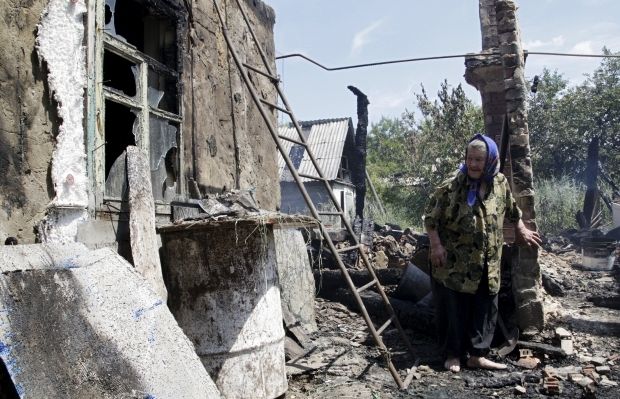
Now the dynamics is not in favor of the Kremlin's plan, rather the contrary. So Ukraine shouldn’t get depressed. But you have another problem which is internal. If these internal problems are not solved, there will be two limp one-legged states – Ukraine and Russia – fighting each other with crutches.
Roman Tsymbaliuk
Translated by Yevgeny Matyushenko

